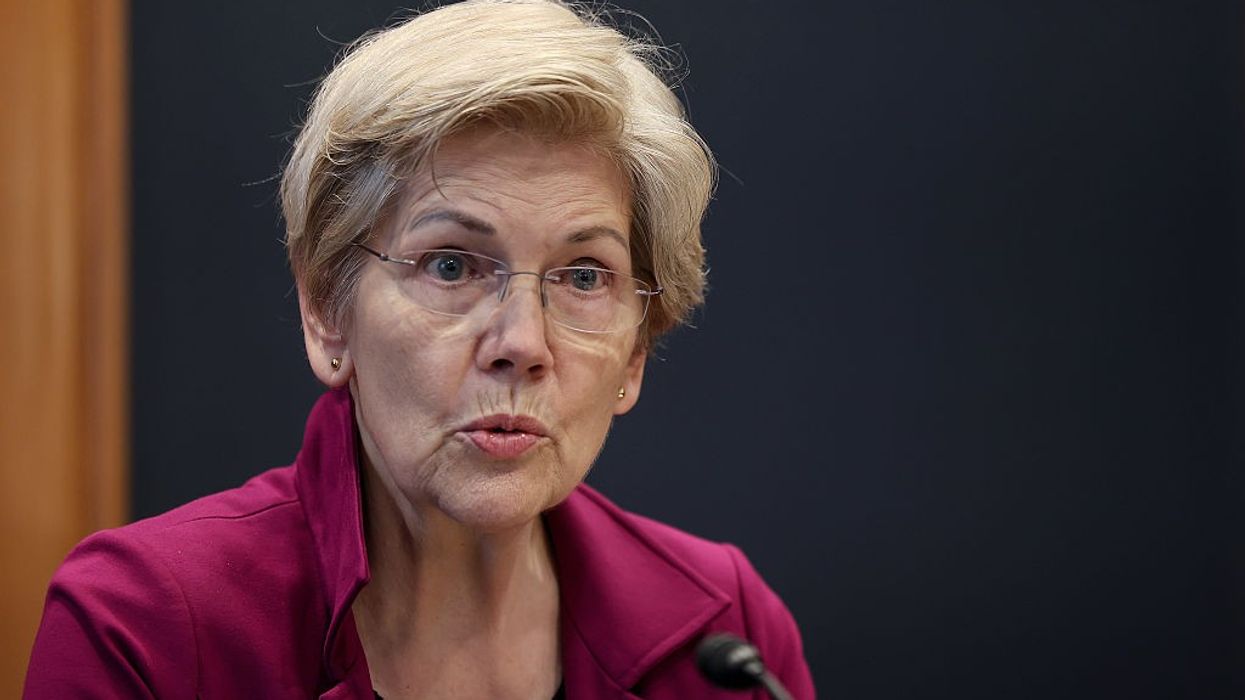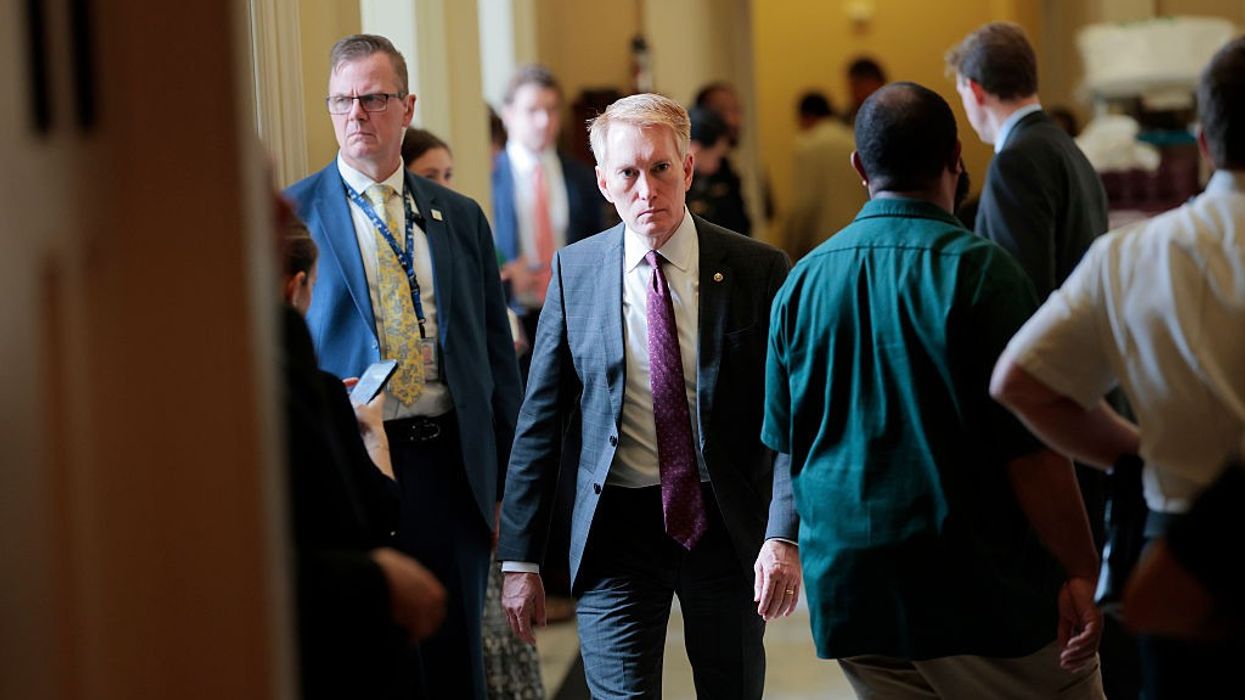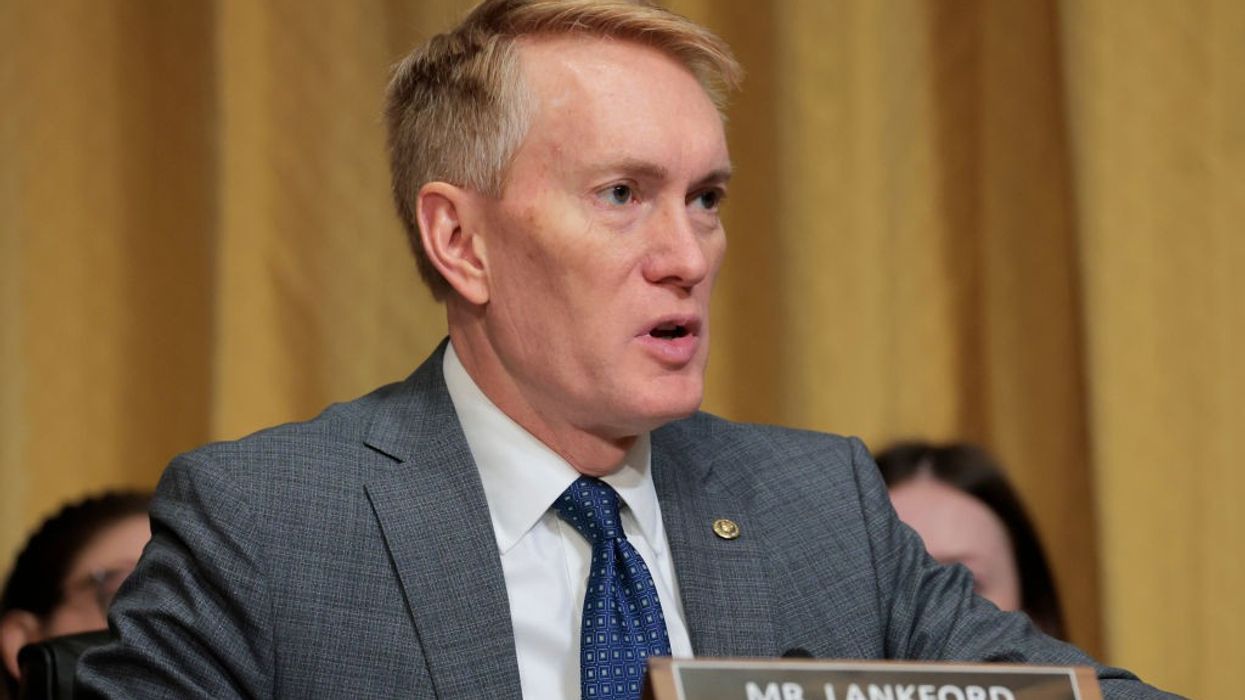Senate Dems Demand Explanation After Big Oil Lobbied for 'Giveaways at the Expense of American Families'
The fossil fuel industry spent big to push through a $1 billion provision in the GOP budget bill, which the senators said would allow some oil companies to "pay no federal income taxes whatsoever."
Four Democratic U.S. senators are demanding an explanation from Big Oil after a $1.1 billion tax loophole was added to the Senate version of the GOP's budget reconciliation megabill.
Letters sent Thursday by Sens. Elizabeth Warren (D-Mass.), Ron Wyden (D-Ore.), Sheldon Whitehouse (D-R.I.), and Chuck Schumer (D-N.Y.) called out the CEOs of two oil giants, ConocoPhillips and Ovintiv, which they say "lobbied furiously" for the handout.
The companies, the senators said, "[stand] to benefit tremendously from this provision and ha[ve] spent big to support it—while preserving the many government subsidies for the oil and gas industry already in the tax code."
They asked for the companies to disclose how much they have spent lobbying Republicans for the tax break and how much of a windfall they expect in return.
The provision in question, approved by the Senate Finance Committee last week, would shield many large oil companies from the Inflation Reduction Act's corporate alternative minimum tax, or CAMT. Introduced in 2022, the CAMT requires that companies making more than $1 billion pay 15% of the profits they report to shareholders.
"The rationale for CAMT was simple," the senators said. "For far too long, massive corporations had taken advantage of loopholes in the tax code to avoid paying their fair share, sometimes paying zero federal taxes despite earning billions in profits."
The GOP bill modifies how oil companies are required to report earnings, allowing them to exempt "intangible drilling and development costs," which in turn allows more companies to fall below the $1 billion earnings threshold.
The senators highlighted a 2023 earnings call by Marathon Oil, recently acquired by ConocoPhillips, in which executives said the CAMT was the only income tax they were required to pay.
"If enacted," the senators said, "this provision would reduce or even eliminate tax liabilities for oil and gas companies under CAMT, allowing some to pay no federal income taxes whatsoever."
The letter highlighted lobbying filings by ConocoPhillips and Ovintiv in which they "explicitly prioritize" securing this handout.
Referenced throughout is the aggressive effort to court Sen. James Lankford (R-Okla.), who wrote the loophole into the Senate bill. According to OpenSecrets, Lankford received more than $546,000 in campaign contributions from the oil and gas industry—his top source of industry donations—between 2019 and 2024.
The senators described the industry's lobbying as "especially insulting" because "Senate Republicans are trying to pay for this handout with cuts to other programs that would end up raising energy prices for everyday Americans."
The GOP bill would eliminate tax breaks for clean energy that incentivize consumers to purchase electric vehicles and make their homes more energy-efficient, including the home energy-efficiency and residential clean energy credits.
Citing data from Rewiring America, the senators estimated that ditching the two credits would cost the average household up to $2,200 per year in savings on utility bills.
The Center for American Progress projects that eliminating electric vehicle credits would increase demand for gasoline, raising prices by 27 to 35 cents per gallon by 2035. Americans will pay the oil and gas industry "an additional $339 billion for gasoline and $75 billion for electricity by 2035," the May report says.
"Congress should not raise energy prices for working families to deliver handouts to Big Oil," the senators said.


